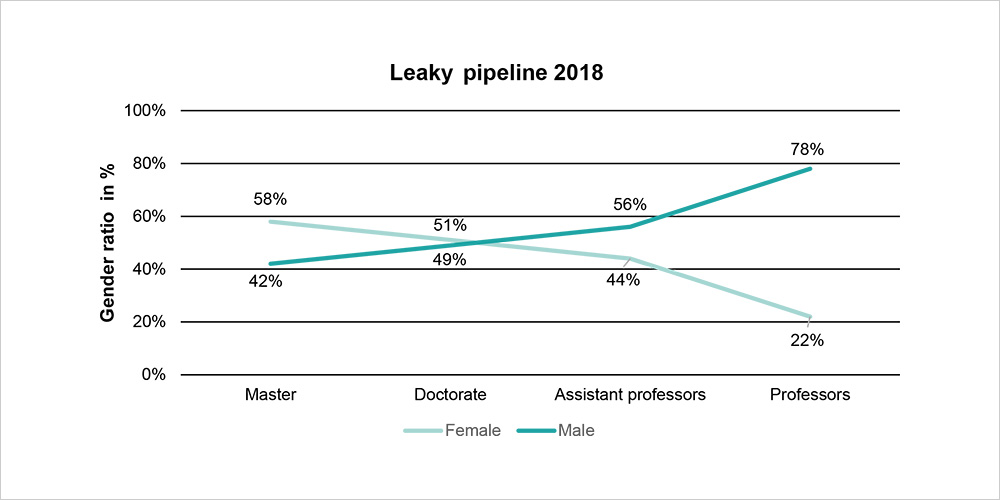Diversity & inclusion

Taking into account the social aspects of sustainable development, the University of Basel sees itself as an organization that values and promotes its members’ wide range of potential, regardless of age, religion, gender, cultural heritage, sexual orientation or disability.
Equal Opportunities goes Diversity
After 20 years, the Equal Opportunities Office became the Office for Diversity in 2018. At the same time, the new direction was a topic at the anniversary event and public lecture series on diversity research carried out during the 2018 fall semester in collaboration with the Center of Gender Studies.
Equal opportunity & internationalism
The focus remains on increasing the percentage of women in positions requiring higher qualifications. It has been shown that women are equally represented in undergraduate, graduate and doctorate studies but that their numbers drop in the career path to professorships. Of 338 professorships, only 22% are filled by women. This phenomenon is called "leaky pipeline".
To increase the percentage of appointable women, the antelope career program has been supporting around 60 highly qualified female scientists in their career development each year since 2014. This is also helping to realize the cantonal mandate.
Another important target group is international PhD students and postdoctoral students. Café International, a joint event series organized by the International Office and the language center, offers them a forum during four annual events to discuss intercultural challenges and resources.
Inclusion: Students without Barriers
The Students without Barriers (StoB) service point at the University of Basel supports students with physical, chronic or mental disabilities, as well as helping the faculties to meet the special needs of these students. The number of people receiving support has increased from 40 in 2012 to more than 100 persons. In 2018, 67 students received compensation for disadvantages, such as in the form of special exam rooms or extra time allowed for taking exams. For people with multiple disabilities, the StoB has a pool of assistants available to serve as writing aids, for example.
Scholarships
Each year, the university’s Social Services office grants scholarships to around 150 financially disadvantaged students. What makes this financial support unique is that there is a tradition for lecturers, alumni and students to donate to these scholarships as well. Each semester, around a quarter of students donate 10 francs each to support their fellow students.


